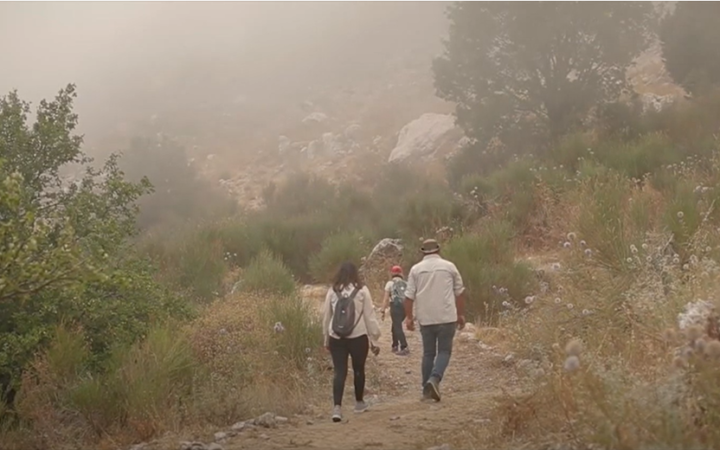
Posted on
« As time goes by and country management falls apart, I realize that Biosphere Reserves are the greatest invention. More relevant today than 50 years ago… »
Pierre Doumet, Co-Founder and President of the Association for the Protection of Jabal Moussa
The Association for the Protection of Jabal Moussa (APJM), partner in the EduBioMed project, is also participating in the project CROSSDEV, an EU-funded project under the ENI CBC MED programme, which focuses on less-known tourist destinations in 4 Mediterranean regions.
We have asked Pierre Doumet, Co-Founder and President of the Association and Joelle Barakat, Conservation Manager, some insights on this project and its possible benefits for Jabal Moussa UNESCO Biosphere Reserve and for its work within Edu-BioMed.
What is the role of the Association in the CROSSDEV project and what are the impacts of such a project on Jabal Moussa?
APJM is a main partner within CROSSDEV, and the instigator of the project concept, along with the Lead Partner, the International Committee for the Development of Peoples (CISP). APJM is working on improving less known cultural sites within Jabal Moussa Biosphere Reserve and neighbouring Adonis Valley, and including them within a cultural route, for the benefit of local communities, and with the cooperation of public institutions.
The project includes many components, such as training sessions, development of tourism packages, marketing of the packages, establishment of tourism centers and restoration of sites, among others.
What are the possible synergies between Edu-BioMed and CROSSDEV?
A common component between the CROSSDEV and the Edu-BioMed projects is research. In fact, our cultural packages are based on thorough historical findings, the most recent ones being the excavations in Qornet el Deir, shedding light on what humans used to do so high up in the mountains, through many periods. Edu-BioMed also has contributed in this research, since part of the studies are being conducted at the American University of Beirut (AUB), where floatation equipment is being installed for the processing of certain soil material from Qornet el Deir.
Another major common theme between both projects is the Mediterranean; both projects focus on the Mediterranean heritage, whether natural or cultural or both. In fact, Biosphere Reserves often comprise both aspects, and through research, we are able to better highlight the richness of the Mediterranean area. In terms of natural heritage, we are focusing within EduBioMed on the endemic flora species of our Biosphere Reserve, another particularity of the Mediterranean.
Both projects have understood and valued the richness of the UNESCO Man and Biosphere Reserve Program, particularly the Mediterranean MAB Network. For this reason, we are thinking of transforming the MOOC courses of Edu-BioMed into two documentaries usable both in the Edu-BioMed and CROSSDEV projects. They emphasize the protection of cultural and natural heritage through the MAB Program by determining local communities’ intent on providing a sustainable socio-economic benefit in the interest of conservation.
If you want to know more about Jabal Moussa you can read this article and virtually visit it thanks to the documentary prepared in the framework of the CROSSDEV project available here.



